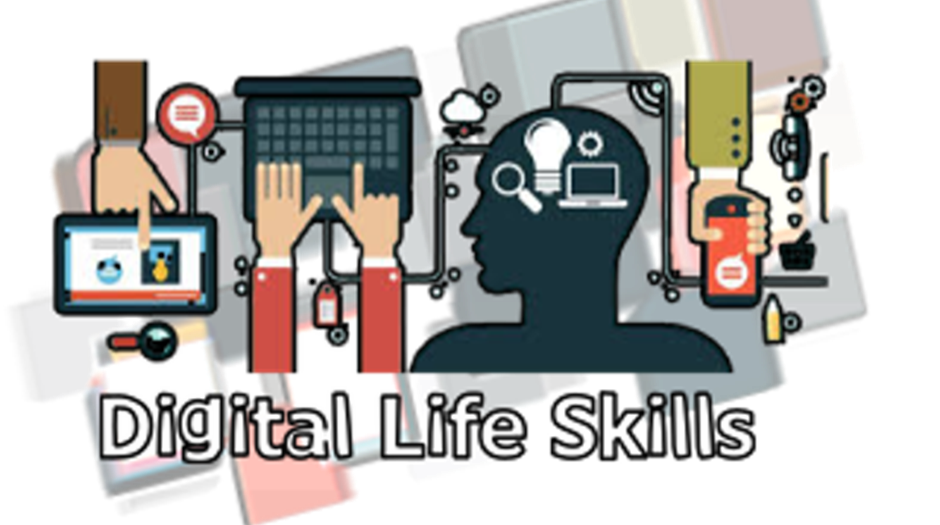09 February 2023
Core KS4 Computing: Digital Life Skills

In England, Computing is a foundation subject from KS1 to KS4 which means that every student in a state funded school must be taught the Computing National Curriculum from age 5-16. Academies do not have to follow the national curriculum, but they are held to account by the same standards by Ofsted, who have made it clear in their research review that they expect all schools (and academies) to offer a broad and ambitious curriculum from KS1-4.
At KS4, the Computing Programme of Study states that “All pupils must have the opportunity to study aspects of information technology and computer science at sufficient depth to allow them to progress to higher levels of study or to a professional career”.
For many years after the introduction of Computing as a replacement for ICT in 2014, the ambiguous phrase “have the opportunity to study” has often been interpreted as though it is sufficient for students to be able to have the option to choose a GCSE in Computer Science: those who didn’t choose GCSE CS had the opportunity and rejected it. In my opinion, the next paragraph makes it clear that “all pupils should be taught“ the three strands within Computing KS4: basic digital literacy, computer science and information technology.
If you agree with my conclusion that all KS4 students should receive some KS4 Computing provision, the challenge for schools (and academies) across the country is to consider the following four questions:
What does Computing for all at KS4 look like?
Curriculum time is finite, extremely valuable and hotly contested. Some schools will attempt to map out KS4 Computing across other subjects, others may timetable lessons once per week or once per fortnight. Based on feedback from students, my school has started offering Digital Life Skills on a form time rotation for Y10 students so that each student will complete three mini topics during registration with 3x20 minute slots on:
- Collaborating Online: using online tools to collaboratively create and share digital posters that encourage students to seek support if they struggle with mental health, bullying or other issues.
- Social media challenges: researching and discussing online opportunities and threats and using spreadsheets to plan your finances as a positive social media superstar.
- Impact of technology: exploring how AI, cybersecurity, plagiarism and copyright affects individuals, businesses and the environment
What are the challenges of teaching KS4 Computing for all?
Curriculum time is short: timetabling a computing lesson for Y10 students would mean that another subject is going to lose curriculum time. Students that do choose GCSE CS may feel they are wasting their time on the basic core computing provision and those who didn’t choose GCSE CS may not be motivated to work all that hard. It’s also a challenge for schools to find qualified Computing teachers and it’s a huge challenge training and resourcing teachers with specialisms in other subject areas to deliver core computing in a way that is engaging and impactful.
What’s the benefit of teaching KS4 Computing for all?
We know that businesses are desperate for digitally literate prospective employees. Students often say that they want to learn skills with real world value so that they can manage their finances and thrive in the world of work. Working through Digital Life Skills in form time has enabled us to reach a whole year group whilst also investing in the digital skills of their form tutors which has led to some excellent cross curricular discussions with both staff and students. Learning digital skills well is inherently beneficial in its own right but it also equips students for revision, study, work and life outside of school.
What resources are available?
Many schools recommend iDEA award badges and Teach Computing has a variety of resources aimed at non-GCSE Computer Science students. CAS is a great place to find, share and discuss resources.
What do you currently offer non-GCSE CS students at your school? What would you like to offer if staffing and timetable constraints weren’t a limiting factor? What can you feasibly do to support students with digital skills in the short and medium term? I’d love to hear your thoughts on these questions: do join the conversation in the CAS discussion forums.





Discussion
Please login to post a comment
Thanks Robert. I think those concerns and struggles are shared by pretty much every other school: it’s a real challenge. The form time provision was the best compromise we could think of that was logistically possible. I was initially sceptical (imagine if PE was told their core KS4 provision was going to be done in form time!) but my colleague who’s teaching it is doing a brilliant job and student feedback is that they generally value it more as a form time activity than an additional lesson.
I’d love to get more curriculum time at KS3 too. Every year I’m asked to write a department improvement plan and delegate jobs to people in the department. This time year I ‘delegated upwards’ giving my line manager in SLT the responsibility of increasing KS3 computing curriculum time in Y7 following the Ofsted computing review and an audit of digital skills across the curriculum. That raised a few eyebrows… but at least it’s on the agenda
Interesting post. In terms of your questions we currently have nothing apart from GCSE CS. I would like to bring back a vocational IT option and/or have some sort of core computing provision but I’m struggling to get adequate curriculum time for KS3 let alone for this. Staffing is also an issue as although we really need another full time computing teacher we don’t have the money to hire even if we could find someone good.